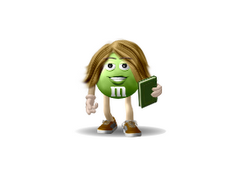
“The Memory Keepers Daughter” a novel by Kim Edwards
Questions for discussion:
(1.) When David hands his baby girl over to Caroline and tells Norah that she has died, what was your immediate emotional reaction? At this early point, did you understand David’s motivations? Did your understanding grow as the novel progressed?
Being that I’m a teacher and work with children of all levels and abilities, I had a hard time at first understanding how someone could not love their child no matter what their imperfections. I mean I’ve come across students who I really didn’t like, for reasons I won’t go into, and they could be a real pain in the arse. But in the end, they were still my students, my responsibility, and I was going to do my best to get them to where they needed to be – no matter what. And in the heart of it all, it didn’t matter if they were a heartache or not, they were still my kids. And “once a Ms. N. kid, always a Ms. N. kid.” I don’t have children of my own so I can only imagine that a parent would feel even stronger about this. But then I was reminded that David lived in a different time. (Come on, using the gas mask to put Norah out during the birth!) And things were definitely different for special needs children then. It wasn’t unusual to send special needs children away to a home. (We see some of the struggles these students had to go through as we follow Caroline as she fights for Phoebe’s rights for an education.) So I settled on it being with the times and moved on with the characters throughout their lives. But somewhere along the way I started thinking about how parents are always trying to give their students something better than what they had. They think about all the things they didn’t have and try to give that to their children. They think about all the painful memories of their childhood and try to eliminate them from their child’s childhood. But parents forget that these are the very things that helps make us what we are today. I see students whose parents are overprotective of their children and I do believe that they are missing out on some really important lessons in life… lessons they need to learn through their own experience. I wouldn’t be where I am today without all the obstacles I’ve had to overcome in the past. And the good times wouldn’t be as good without the bad to compare them to. I began to think David was in the mind set of this type of protection when he hands over Phoebe to spare Norah. He remembers the sadness he felt about his own sister and her health issues and wanted to spare his wife and son the same heartbreak. What David doesn’t realize is that they too come with their own background and unique experiences that may have made them stronger in areas that he was weaker. David illustrates the typical pendulum effect of generations. When growing up in an unhappy situation (no matter how bad that situation) people tend to want to give their children the total opposite, without considering the good aspects of their childhood. David forgot about how close his family ties once were. How happy they could be playing games together and living off the land. Paul and Norah miss out on this type of happiness because David wanted “better” for his son and wife.
(5.) Throughout the novel, the characters often describe themselves as feeling as if they are watching their own lives form the outside. For instance, David describes the moment when his wife is going into labor and says “he felt strangely as if he himself were suspended in the room… watching them both from above” (p10). What do you think Edwards is trying o convey here? Have you ever experienced similar feelings in your own life?
I think there are times in our lives that can be so emotional or perceived as so out of our control that we feel as if we are just watching it all happen. Watching it spin out of control without having the power to take control and change what we see. Sometimes it’s good to step a little outside of ourselves and see the whole picture for what it really is. But when stepping out and seeing something that makes us unhappy or not right this is our chance to react for change and rejoin our lives as an active participant. Throughout the story, as characters felt they were “watching from above” and found themselves in a situation spinning out of control, (giving away Phoebe, depression setting in, a failing marriage, failing father-son relationships) they gave into the situation as if there were nothing they could do to change it, just accepting it as is. Not liking, but accepting as truth. They didn’t realize that they could take the initiative to make a change for the positive. They held the keys to the ties that binds them. Caroline is in contrast to this. She is able to see beyond the crazy moment, analyze her actions and possible actions, and make changes for the better.
Questions for discussion:
(1.) When David hands his baby girl over to Caroline and tells Norah that she has died, what was your immediate emotional reaction? At this early point, did you understand David’s motivations? Did your understanding grow as the novel progressed?
Being that I’m a teacher and work with children of all levels and abilities, I had a hard time at first understanding how someone could not love their child no matter what their imperfections. I mean I’ve come across students who I really didn’t like, for reasons I won’t go into, and they could be a real pain in the arse. But in the end, they were still my students, my responsibility, and I was going to do my best to get them to where they needed to be – no matter what. And in the heart of it all, it didn’t matter if they were a heartache or not, they were still my kids. And “once a Ms. N. kid, always a Ms. N. kid.” I don’t have children of my own so I can only imagine that a parent would feel even stronger about this. But then I was reminded that David lived in a different time. (Come on, using the gas mask to put Norah out during the birth!) And things were definitely different for special needs children then. It wasn’t unusual to send special needs children away to a home. (We see some of the struggles these students had to go through as we follow Caroline as she fights for Phoebe’s rights for an education.) So I settled on it being with the times and moved on with the characters throughout their lives. But somewhere along the way I started thinking about how parents are always trying to give their students something better than what they had. They think about all the things they didn’t have and try to give that to their children. They think about all the painful memories of their childhood and try to eliminate them from their child’s childhood. But parents forget that these are the very things that helps make us what we are today. I see students whose parents are overprotective of their children and I do believe that they are missing out on some really important lessons in life… lessons they need to learn through their own experience. I wouldn’t be where I am today without all the obstacles I’ve had to overcome in the past. And the good times wouldn’t be as good without the bad to compare them to. I began to think David was in the mind set of this type of protection when he hands over Phoebe to spare Norah. He remembers the sadness he felt about his own sister and her health issues and wanted to spare his wife and son the same heartbreak. What David doesn’t realize is that they too come with their own background and unique experiences that may have made them stronger in areas that he was weaker. David illustrates the typical pendulum effect of generations. When growing up in an unhappy situation (no matter how bad that situation) people tend to want to give their children the total opposite, without considering the good aspects of their childhood. David forgot about how close his family ties once were. How happy they could be playing games together and living off the land. Paul and Norah miss out on this type of happiness because David wanted “better” for his son and wife.
(5.) Throughout the novel, the characters often describe themselves as feeling as if they are watching their own lives form the outside. For instance, David describes the moment when his wife is going into labor and says “he felt strangely as if he himself were suspended in the room… watching them both from above” (p10). What do you think Edwards is trying o convey here? Have you ever experienced similar feelings in your own life?
I think there are times in our lives that can be so emotional or perceived as so out of our control that we feel as if we are just watching it all happen. Watching it spin out of control without having the power to take control and change what we see. Sometimes it’s good to step a little outside of ourselves and see the whole picture for what it really is. But when stepping out and seeing something that makes us unhappy or not right this is our chance to react for change and rejoin our lives as an active participant. Throughout the story, as characters felt they were “watching from above” and found themselves in a situation spinning out of control, (giving away Phoebe, depression setting in, a failing marriage, failing father-son relationships) they gave into the situation as if there were nothing they could do to change it, just accepting it as is. Not liking, but accepting as truth. They didn’t realize that they could take the initiative to make a change for the positive. They held the keys to the ties that binds them. Caroline is in contrast to this. She is able to see beyond the crazy moment, analyze her actions and possible actions, and make changes for the better.





















No comments:
Post a Comment